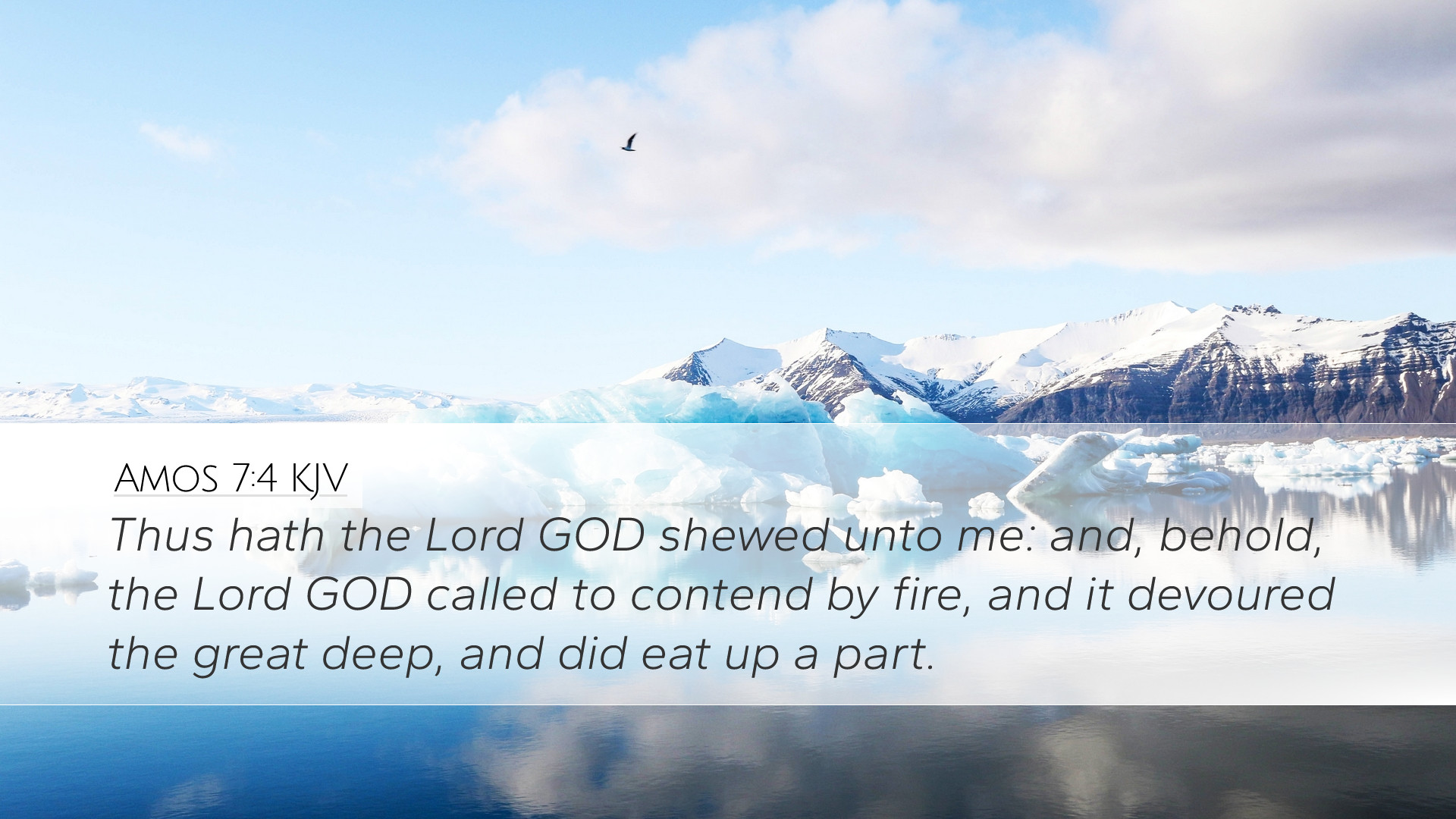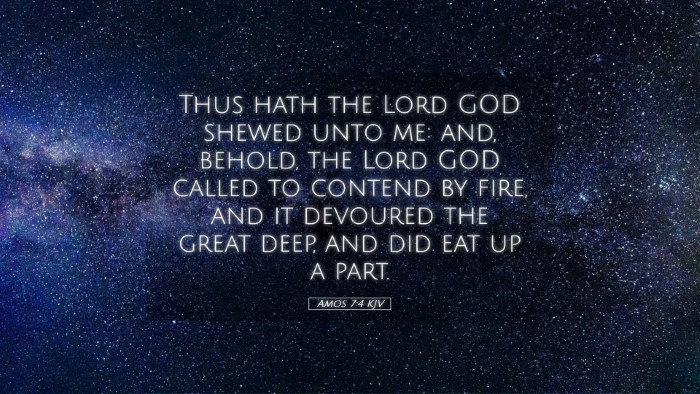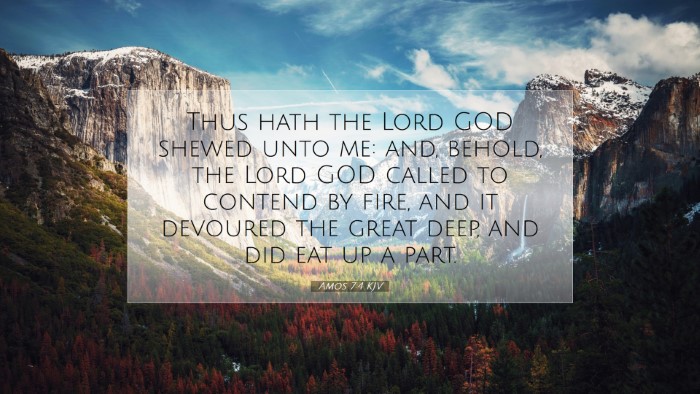Old Testament
Genesis Exodus Leviticus Numbers Deuteronomy Joshua Judges Ruth 1 Samuel 2 Samuel 1 Kings 2 Kings 1 Chronicles 2 Chronicles Ezra Nehemiah Esther Job Psalms Proverbs Ecclesiastes Song of Solomon Isaiah Jeremiah Lamentations Ezekiel Daniel Hosea Joel Amos Obadiah Jonah Micah Nahum Habakkuk Zephaniah Haggai Zechariah MalachiAmos 7:4
Amos 7:4 KJV
Thus hath the Lord GOD shewed unto me: and, behold, the Lord GOD called to contend by fire, and it devoured the great deep, and did eat up a part.
Amos 7:4 Bible Commentary
Commentary on Amos 7:4
Amos 7:4 reads: "Thus hath the Lord God showed unto me: and, behold, the Lord God called to contend by fire, and it devoured the great deep, and did eat up a part." (KJV)
Contextual Overview
In this portion of the book of Amos, the prophet is conveying a vision received from the Lord. This vision signifies impending judgment upon the kingdom of Israel due to their transgressions and failure to heed divine callings. Scholars like Matthew Henry elucidate that the imagery used here—a fire that consumes—serves as a stark representation of God's judgment and His desire for repentance among His people.
Significance of Fire in Amos 7:4
The mention of fire is emblematic throughout Scripture, representing purification, divine judgment, and sometimes destruction. Albert Barnes emphasizes that fire, in this context, reflects a consuming judgment aimed at purging Israel of its unrepentant sinfulness. This particular fire was not just a local fire, but one that “devoured the great deep,” symbolizing both the vastness of the judgment and the indiscriminate nature of God's wrath against sin.
Historical Context
The prophecy in Amos occurs during a time of considerable prosperity in Israel, particularly in the northern kingdom. However, alongside this material wealth was societal corruption, injustice, and moral decay. Adam Clarke notes that the comfort found in wealth led to a disregard for God and His standards, terminating in judgment as a necessary corrective measure from the Lord to restore His covenant people.
Theological Reflection
From a theological perspective, Amos 7:4 presents a duality in God's nature—His love for His people and His holiness that demands justice. This makes the message of judgment not simply one of doom, but of hope for restoration. The call for repentance is implicit in the fiery judgment; it serves as encouragement for the people to return to righteous living. Matthew Henry argues that understanding God’s judgment enables believers to grasp His mercy in that He desires repentance leading to restoration rather than mere punishment.
Applications for Today
For contemporary readers and listeners, there are several applications to consider:
- Awareness of Judgment: This passage calls for an awareness of God's judgment on sin within believers and the community at large. It prompts introspection about personal conduct and corporate ethics within the church.
- Call to Repentance: The vision encourages a call to repentance, urging believers to seek God's grace and forgiveness in times of straying.
- Understanding God’s Character: It allows a deeper understanding of God’s character—merciful yet just. The justice of God should lead to comfort in His righteousness and a call to live in accordance with His will.
- Endurance and Hope: The metaphor of fire may act as a reminder that trials and tribulations in the believer’s life may serve God's purposes of purification and strengthening faith throughout life's adversities.
Conclusion
In conclusion, Amos 7:4 offers rich insights into the nature of God’s judgment as both an act of correction and a call to repentance. Through the lens of public domain commentaries by Matthew Henry, Albert Barnes, and Adam Clarke, we see a multi-faceted interpretation of this text that challenges and encourages us, extending its relevance beyond its historical context into our lives as believers today. Engaging with this text becomes vital for pastors, students, theologians, and scholars as they navigate the implications of divine justice and mercy in our modern world.


